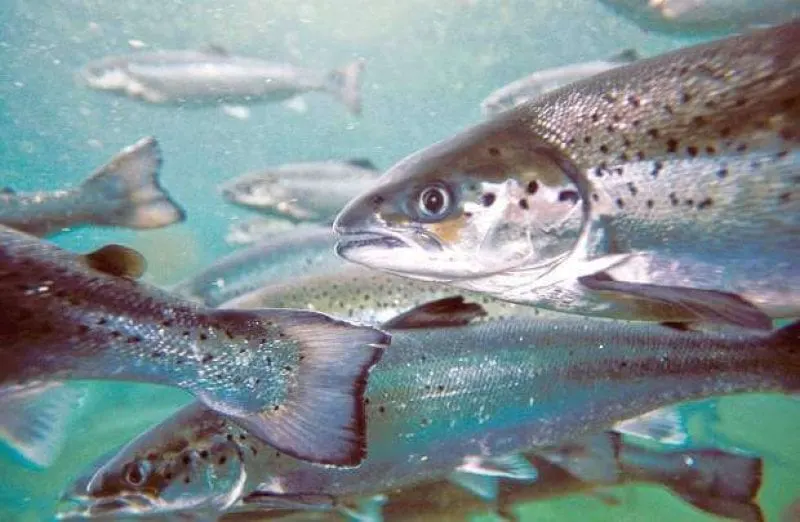Gene editing could fight deadly diseases in fish, boosting sustainable aquaculture
Gene editing could fight deadly diseases in fish, boosting sustainable aquaculture


Developing effective treatments – like vaccines – can be challenging, take many years and can be difficult to manufacture and deploy in order to effectively protect large populations.
The same is true for disease in aquaculture.
We know, however, that there is natural genetic variation in resistance for aquaculture’s most problematic viral and parasitic diseases.
So our research, some of which is published in the journal Scientific Reports, explores how this knowledge could be used in combination with the latest DNA technology advances, like genomic selection and CRISPR, to protect animals against disease.
…
Atlantic salmon are particularly susceptible to sea lice, while some species of Pacific salmon have very low susceptibility.
In a world-first project funded by the Norwegian Seafood Research Fund, our team from the University of Melbourne and Nofima, in collaboration with scientists from the UK, Canada and the USA, will work with large salmon breeding and production companies in Norway, using gene editing to find out which genes make salmon attractive as a host.
If we can find the differences in the genetic code that cause lice to be attracted to Atlantic salmon, or that makes the skin of Pacific salmon unpleasant for sea lice to settle and develop, then we may be able to use that information to make Atlantic salmon resistant to sea lice.
Read the original post

 | Videos | More... |

Video: Nuclear energy will destroy us? Global warming is an existential threat? Chemicals are massacring bees? Donate to the Green Industrial Complex!
 | Bees & Pollinators | More... |

GLP podcast: Science journalism is a mess. Here’s how to fix it

Mosquito massacre: Can we safely tackle malaria with a CRISPR gene drive?

Are we facing an ‘Insect Apocalypse’ caused by ‘intensive, industrial’ farming and agricultural chemicals? The media say yes; Science says ‘no’
 | Infographics | More... |

Infographic: Global regulatory and health research agencies on whether glyphosate causes cancer
 | GMO FAQs | More... |

Why is there controversy over GMO foods but not GMO drugs?

How are GMOs labeled around the world?

How does genetic engineering differ from conventional breeding?
 | GLP Profiles | More... |

Alex Jones: Right-wing conspiracy theorist stokes fear of GMOs, pesticides to sell ‘health supplements’




 Trust issues: What happens when therapists use ChatGPT?
Trust issues: What happens when therapists use ChatGPT? Fighting deforestation with CO2: Biotechnology breakthrough creates sustainable palm oil alternative for cosmetics
Fighting deforestation with CO2: Biotechnology breakthrough creates sustainable palm oil alternative for cosmetics California, Washington, Oregon forge immunization alliance to safeguard vaccine access against federal undermining
California, Washington, Oregon forge immunization alliance to safeguard vaccine access against federal undermining Viewpoint — Fact checking MAHA mythmakers: How wellness influencers and RFK, Jr. undermine American science and health
Viewpoint — Fact checking MAHA mythmakers: How wellness influencers and RFK, Jr. undermine American science and health 30-year-old tomato line shows genetic resistance to devastating virus
30-year-old tomato line shows genetic resistance to devastating virus Viewpoint: Video — Big Solar is gobbling up productive agricultural land and hurting farmers yet providing little energy or sustainabilty gains
Viewpoint: Video — Big Solar is gobbling up productive agricultural land and hurting farmers yet providing little energy or sustainabilty gains The free-range chicken dilemma: Better for birds, but with substantial costs
The free-range chicken dilemma: Better for birds, but with substantial costs ‘You have to treat the brain first’:Rethinking chronic pain with Sanjay Gupta
‘You have to treat the brain first’:Rethinking chronic pain with Sanjay Gupta
